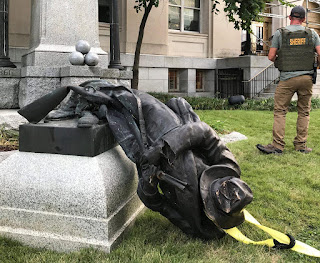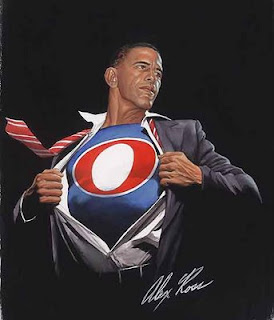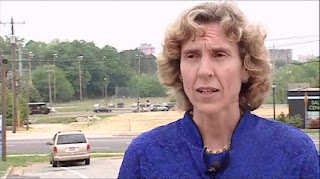


Conflicting reports about whether Mubarak has died
Reports conflicted Wednesday over whether the 84-year-old former president of Egypt, Hosni Mubarak, was clinically dead.
The state-run Middle East News Agency, citing medical sources, said he was declared clinically dead shortly after arriving late Tuesday at a military hospital in Cairo, where he had been taken after suffering a stroke and cardiac arrest earlier in the day.
But Gen. Mamdouh Shaheen, a member of the Supreme Council of the Armed Forces, told CNN, "He is not clinically dead as reported, but his health is deteriorating and he is in critical condition."
Mubarak was taken by helicopter to the military hospital in the Maadi suburb of Cairo, Shaheen said. "He had a heart attack and his heart stopped and he was saved by electric shocks, then placed on respirator," he said. "His pulse is 40.
He then got a brain clot. He is NOT clinically dead as reported but his health is deteriorating and he is in critical condition."
And Mubarak's lawyer, Fareed El Deeb, told CNN, "He has been in a coma for hours now. He has had water on the lungs for 10 days now and his blood pressure is down today, which obstructed his breathing and forced doctors to put him on a respirator.
He was given medicine intravenously to relieve the brain clot, and electric shocks were used to revive him but there was no substantial response.
He is not dead as reported."
El Deeb added that Mubarak's wife, Suzanne, was at his side. He blamed SCAF for not having moved Mubarak last week from the prison to the hospital.
Adel Saeed, the official spokesman of the Egyptian prosecutor, had said earlier, "We were informed by prison authority that Mubarak's heart has stopped and they used electric shocks and CPR to resurrect him. He is now on an artificial respirator and doctors from the armed forces and International Medical Center will inspect him."
Nile TV reported that Mubarak had suffered a stroke.
He was taken from Tora prison hospital to Maadi military hospital, El Deeb told CNN.
"He has suffered a stroke, but he is not dead."
The prosecutor and the military council denied Mubarak had been moved.
His health had been reported in decline since he was ousted as president of Egypt in February 2011 and found guilty of charges related to the killings of hundreds of anti-government demonstrators during the revolution.
Last week, an Interior Ministry spokesman said he was comatose; the spokesman said he suffered from high blood pressure, irregular heartbeats and difficulty breathing.
"We should be skeptical," said Fouad Ajami, a senior fellow at Stanford University's Hoover Institution.
"There's a great Arab expression I like and it asks the following question: When you're told that someone is dead, you say, 'Is he dead and buried, or just dead?' I think we are in the middle of this kind of situation."
"Clinically dead is not a phrase that is commonly used, but when it is used, what it usually means is that someone is brain dead," said CNN Senior Medical Correspondent Elizabeth Cohen. "In the United States, we would call this person dead because they have no brain activity."
Meanwhile, crowds jammed Tahrir Square once again on Wednesday. But their focus this time was not on Mubarak. Instead, it was on the power grab by the Egyptian military, which last week issued a constitutional decree that stripped the position of president of much of its power after a top court dissolved the parliament.
Those moves were followed by the nation's first presidential election, which pitted Muslim Brotherhood candidate Mohammed Morsi against Mubarak's former prime minister, Ahmed Safik. Final results have not been announced.
"It's a media stunt to divert attention from the constitutional decree," said Taha Shaker, a demonstrator in the square. "If he's really dead, it won't make a difference. We've started a sit-in and won't leave unless the Supreme Council of the Armed Forces leaves unconditionally."
"I've come from far away. I'm not leaving until Morsi swears the oath in front of the legitimately elected parliament," said demonstrator Sayed Ahmed. "I don't care about Mubarak. These are games played by the intelligence services."
"If he's really dead, its God's will," said Nasser Shaaban, another demonstrator. "I would hope he lives to see the new president."
Outside Maadi Military Hospital, shortly before midnight Tuesday, there was no additional security. Instead, there were a few policemen outside the main gate and two military police inside the gate. Across the street perhaps a half-dozen journalists sat on the curb smoking cigarettes.
Muslim Brotherhood claims victory in Egyptian presidential vote
The Muslim Brotherhood declared that its candidate won Egypt's historic presidential election this weekend, making the claim hours after openly challenging the nation's military rulers over its dissolution of parliament.
With several million votes still to be counted, the state-run Al-Ahram news website around 4:15 a.m. Monday showed the Brotherhood's Mohamed Morsi leading with about 5,648,000 votes compared with about 4,705,000 for opponent Ahmed Shafik, who served as Egypt's last prime minister in the waning days of Hosni Mubarak's regime.
Yet the Islamist group, citing what it said were all-but-complete official numbers released to its representatives at polling stations nationwide, asserted that Morsi had won by capturing 52.5% of the overall vote.
The official vote count was scheduled to be finished at some point Monday, with final results to be announced Thursday.
Whoever they declare the winner will become the North African nation's first president since Mubarak, who was ousted in a wave of popular unrest last year after three decades in power.
The next president will wade into a country with a political system mired in controversy, confusion and confrontation, much of it due to events over the past week.
Egypt has no constitution in place, though military rulers have vowed to appoint a 100-person panel to craft such a document.
And a court ruling just days before the runoff appeared to invalidate an Islamist-dominated legislative body and then saw the military swiftly move to dissolve that parliament ahead of the election.
But the Muslim Brotherhood, whose Freedom and Justice Party had won a majority of legislative seats, is bucking this act to dissolve parliament.
Mahmoud Ghozlan, a spokesman for the Islamist group, called the move "unconstitutional" and said parliamentary speaker Mohamed al-Katatni will convene legislators on Tuesday.
"This parliament was chosen by 30 million voters over a period of three months, and the legislative power was handed to (lawmakers) chosen by the people," Ghozlan said.
"It is unconstitutional to dissolve it."
And Hussein Ibrahim, a Brotherhood member and majority leader in the legislature, insisted Sunday that parliament "has not been dissolved," according to a report from the state-run Al-Ahram news agency.
Vowing the Brotherhood won't "give it to a coup d'etat," Ibrahim said while casting his vote in Alexandria that military rulers must respect a March 30 constitutional declaration that gives only "the people" the authority to dissolve parliament.
The Supreme Council of the Armed Forces, meanwhile, issued a new constitutional declaration Sunday night detailing some powers that the new president will hold, but gave little indication it was budging on the state of parliament.
After being sworn in, the new president will set the date for parliamentary elections and can pardon and appoint government officials and ambassadors to foreign countries.
But the military leadership stated that legislative power, as well as control of the national budget, will remain in its hands until a new parliament is elected.
The Brotherhood "strongly rejected" the military declaration about parliament on its official Twitter feed. The group also said that the constitutional panel picked by parliament will hold its first meeting Monday to begin drafting a constitution, in defiance of the military council.
There's also plenty of dispute over the validity of this weekend's presidential runoff vote, which Shafik and Morsi's campaigns accusing each other of election fraud.
A wild election weekend for Egypt, France and Greece
Turnout appeared sluggish Sunday at some polling stations in Cairo, where streets were mostly quiet despite what many Egyptians viewed as moves last week by military leaders, who have ruled the country since Mubarak was forced out in February 2011, to hold on to power. Some voters may have stayed home because of sweltering heat, officials told the state-run Al-Ahram newspaper.
As of 4 p.m. Sunday in Egypt, 40% of the nation's 50 million eligible voters had cast ballots, according to Farouk Sultan, the head of Egypt's Supreme Presidential Election Commission. In the first round of voting last month, 46% of voters participated.
Officials have reported few voting irregularities in the second round of elections, Sultan said.
To protect the balloting process, authorities went so far as to camp outside polling stations overnight during the runoff. At one station designated for women in Cairo, guards slept on the doorstep.
The Supreme Presidential Electoral Committee approved licenses for 53 organizations to observe the elections, including at least three international groups -- the U.S.-based Carter Center, the South Africa-based Electoral Institute for Sustainable Democracy in Africa and the Arab Network for Monitoring of Elections.
Yet Shafik's campaign filed "several complaints" with Sultan's commission, alleging the Muslim Brotherhood committed "systemic violations."
Specifically, they accused the Islamist group's supporters of bribing voters with "large sums of money and food" to back Morsi, as well as using "intimidation, threats and violence against supporters of candidate Ahmed Shafik." The former prime minister's camp also said it "filed more than 100 official complaints accusing the Brotherhood of ballot rigging and stuffing."
"The Muslim Brotherhood's systematic election violations prove how the (group) does not believe in freedom of choice and democracy unless this democracy brings them to power," Shafik's campaign said in a statement. "The organized and persistent election fraud by the Muslim Brotherhood proves they ... only talk the talk and never walk the walk of liberal democracy."
In a statement on its website, the Brotherhood flatly denied what it called "false reports being circulated" and urged election officials to promptly investigate what it called "games and plots." It also accused "the rival candidate's supporters (of) paying cash bribes to some voters," among other allegations.
Outside the city, in Giza, Mohammed Gamea cast his ballot for Morsi even as he questioned whether the election was fairly handled.
"I don't believe the Egyptian presidential elections are fair to begin with," he said Sunday morning. "The military council, assisted by the elections committee, tried everything to stall and influence the process, from disqualifying previous candidates before the first round -- not to mention the negative campaigns against Morsi -- while keeping quiet about Shafik."
"But despite all (this), I don't believe that there has been any electoral fraud. The ballots will determine what is next for Egypt."
The real obstacle to democracy in Egypt
Some disgruntled voters launched a campaign to invalidate ballots, said Mohamed Ghoneim, the founder of a group that marked "X" on the names of both Morsi and Shafik, thereby nullifying their vote.
Among the boycotters was Mohamed Khamees, who said he lost sight in his left eye from a police beating in Tahrir Square during the early 2011 protests.
"If I give this country for the Brotherhood hands, there is not going to be any more Egypt, it will be destroyed," he told CNN. "And if I give it to someone from the old system, it looks like we did nothing."
View Larger Map
Sources: CNN, Youtube, Google Maps







































































.jpg)























No comments:
Post a Comment